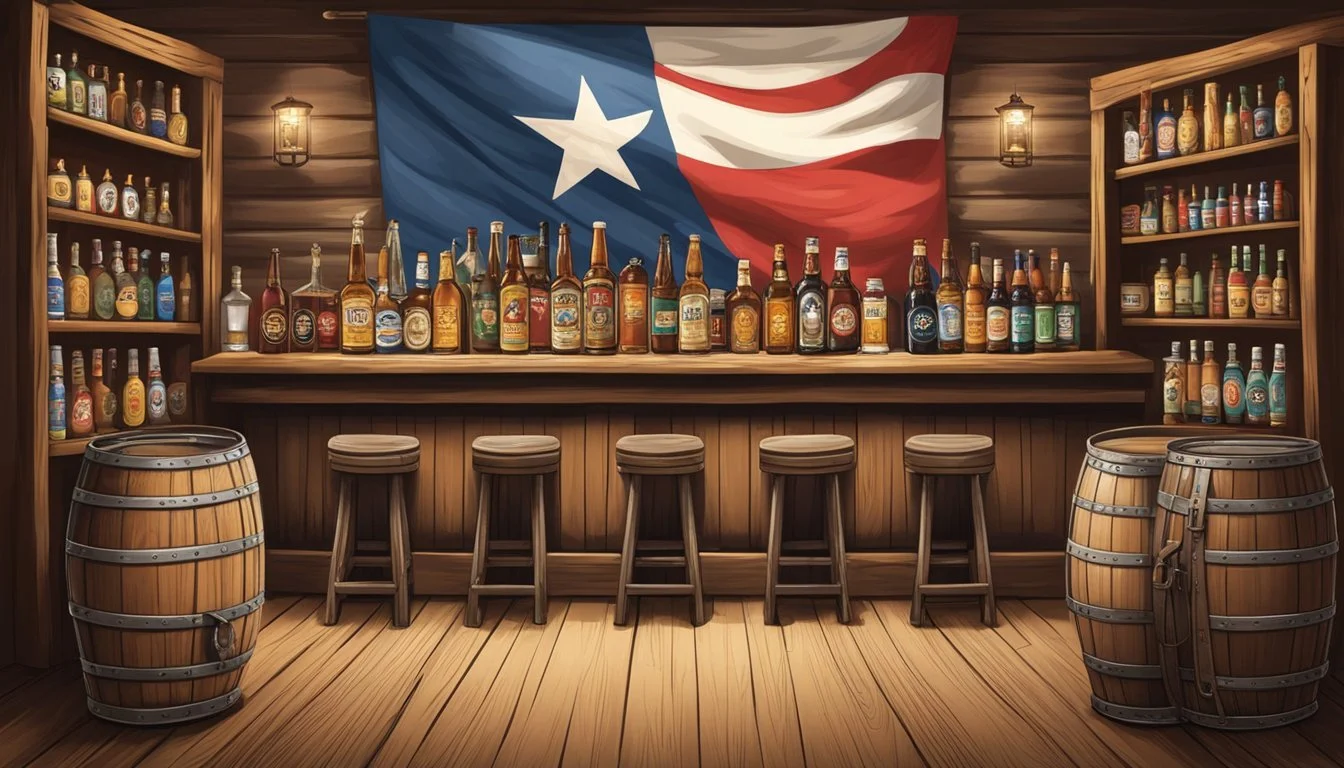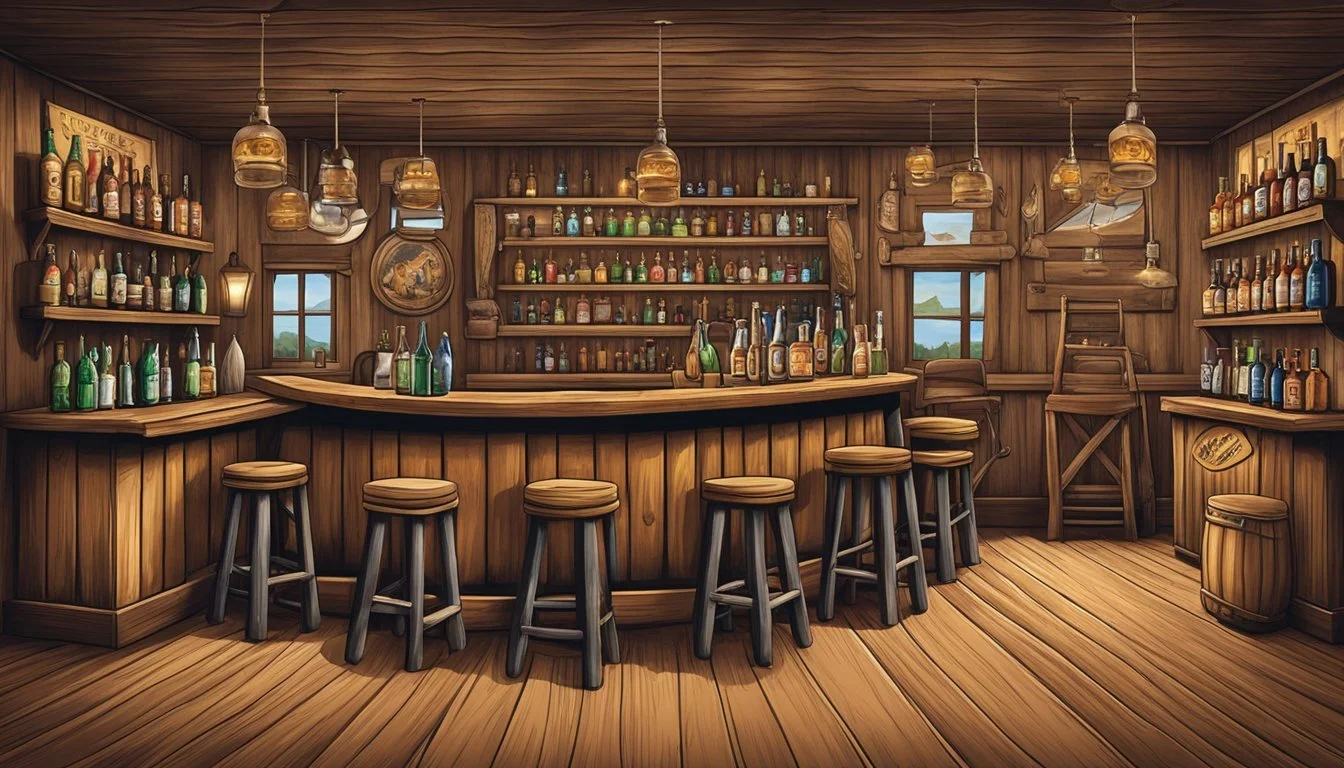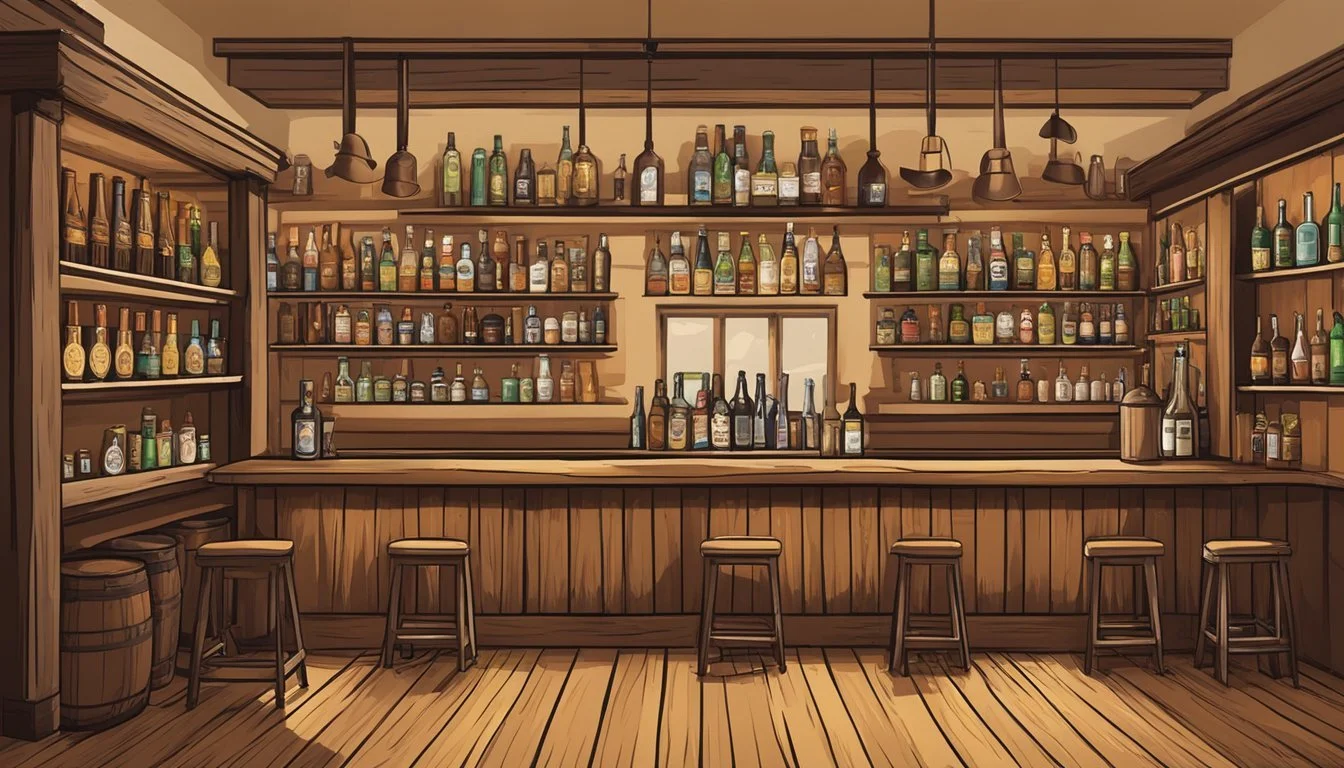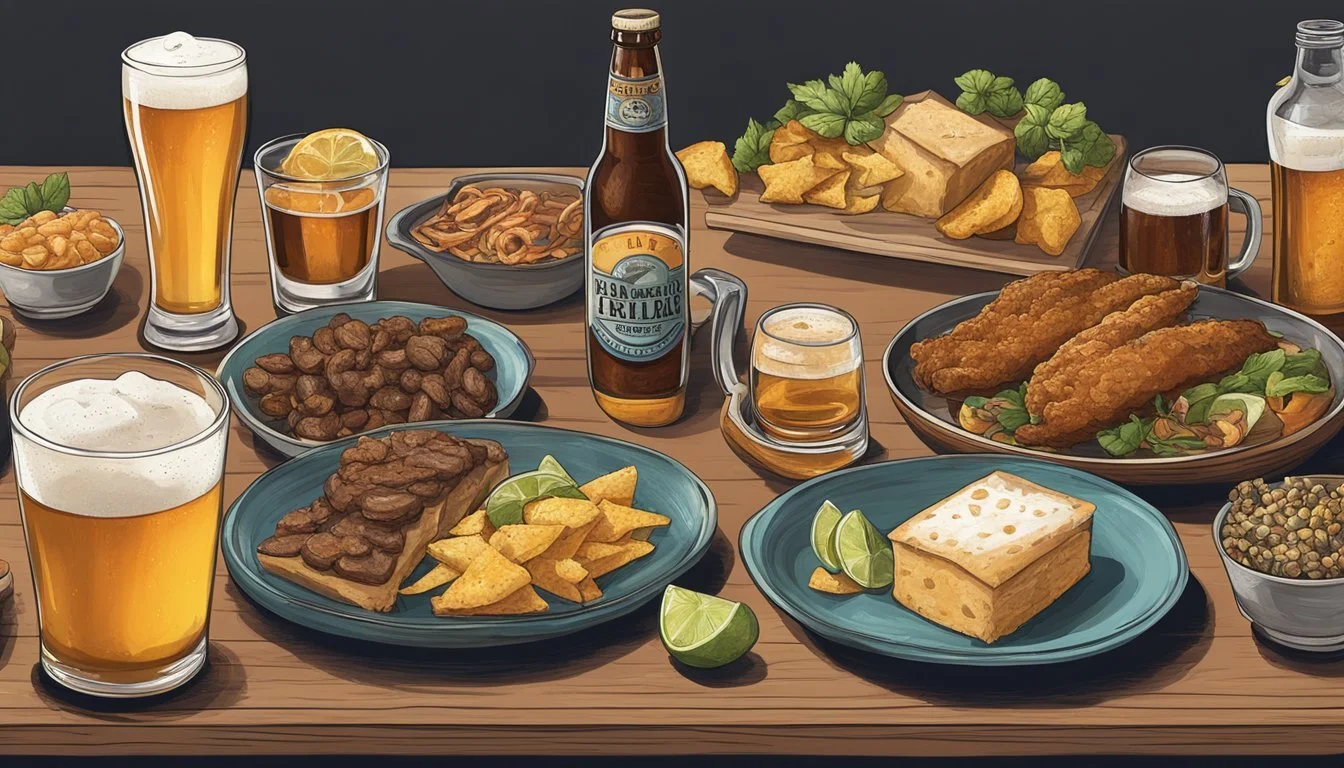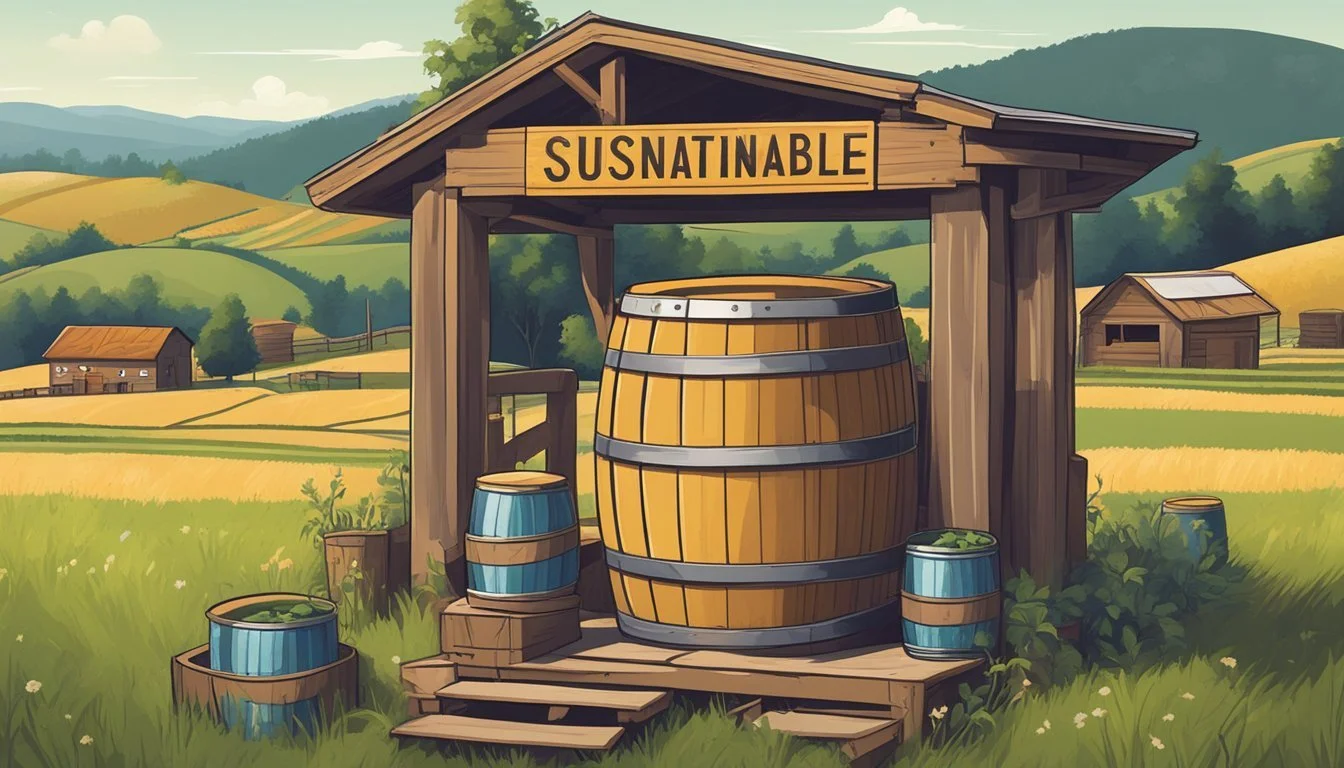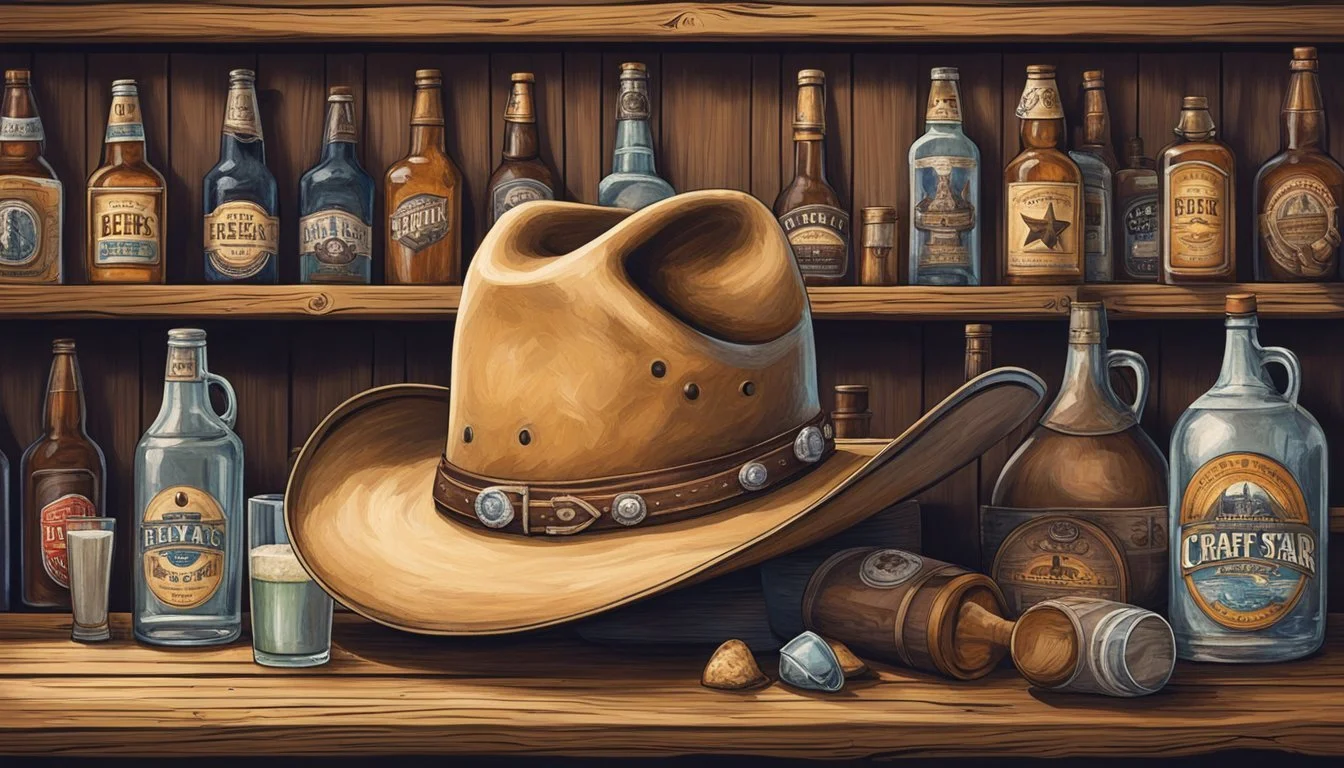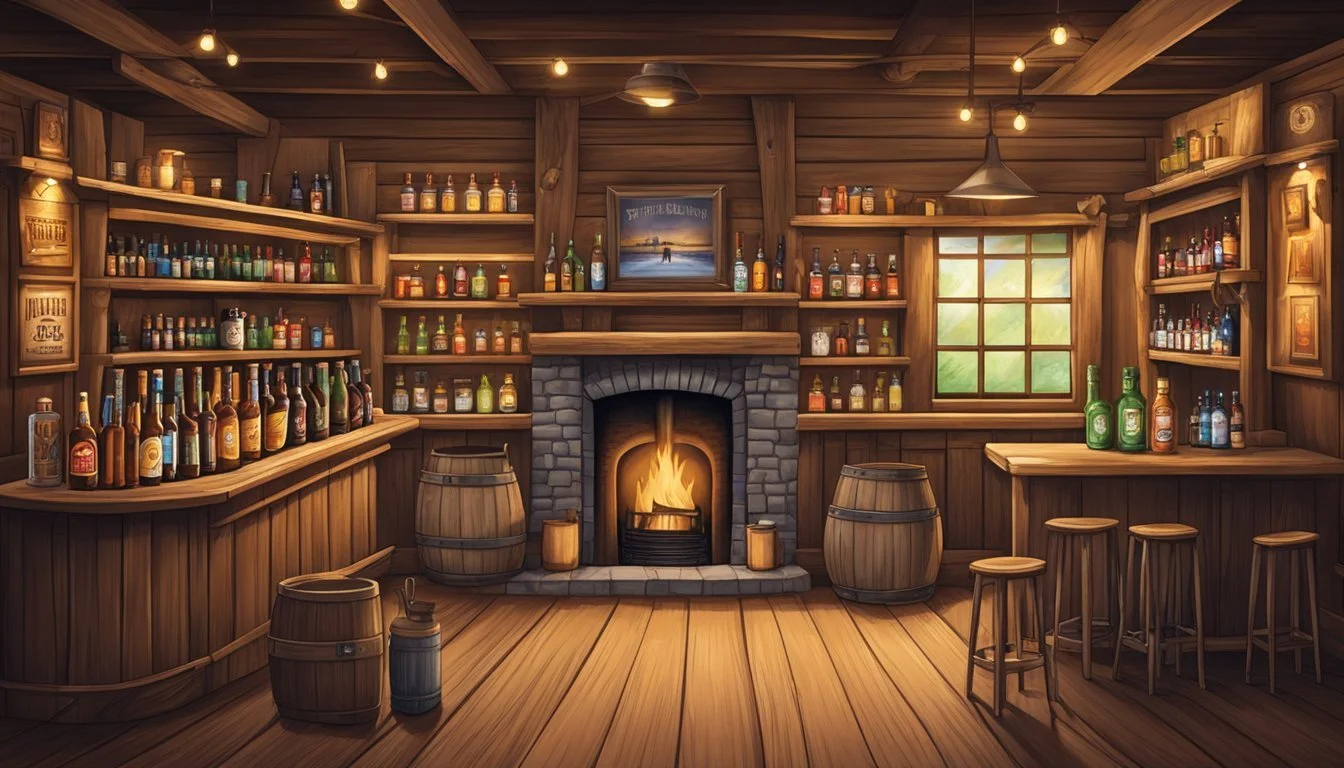The Texas Cowboy's Guide to the Best Local Craft Beers and Spirits
Your Ultimate Resource
Texas, with its rich cowboy culture stemming from the iconic American West, has long been synonymous with rugged individualism and frontier spirit. This same boldness is embodied in the state's thriving craft beer and spirits sector. The Lone Star State's breweries and distilleries, much like the cowboys of yore, are unafraid to explore uncharted territories of taste and tradition, creating unique and robust flavors that stand out in the American craft beverage landscape.
Local craft beers have become a point of pride for Texans, reflecting the diversity and ingenuity of its people. From the bustling streets of Houston and Dallas to the scenic hills of Austin and the historic charm of San Antonio, Texas boasts a variety of breweries and beers that are as distinct as the state itself. These local concoctions pair perfectly with the state's culinary staples, complementing everything from spicy barbecue to hearty Tex-Mex.
In the world of spirits, Texas distilleries are gaining acclaim, producing fine whiskeys, vodkas, and more that capture the essence of cowboy culture—the same culture that's celebrated in rodeos and ranches across the state. Quality craftsmanship and a commitment to tradition ensure that each bottle tells a story of the terroir and the people, resonating with the tenacity and character of the American West. Whether enjoyed in a saloon-like tavern or a sleek urban bar, these spirits reflect the vibrant heritage and resilience of the Texan identity.
History of Texas Cowboys
The genesis of Texas cowboys can be traced to the Spanish legacy, particularly through the influence of vaqueros, skilled horsemen and cattle herders from Mexico. When Spain claimed Texas, they introduced cattle and horses, along with ranching techniques that defined the cowboy way of life. This cultural infusion was carried forward when Mexico gained independence, and the knowledge of cattle management spread through the region.
During the 19th century, after the Texas Revolution and the Civil War, cowboy culture evolved further. Texas was left with vast herds of wild longhorn cattle, a legacy of the Spanish era, which thrived in the rugged landscape. Ex-Confederate soldiers and settlers saw economic opportunity in herding these cattle. The cattle drive became a cornerstone of cowboy life, with the iconic Chisholm Trail serving as a major route moving cattle from Texas ranches to railroad heads in Kansas, initiated by Jesse Chisholm. This era saw the rise of renowned figures like Richard King, founder of the expansive King Ranch, famed for their trail drives and development of ranching methods.
Cowboys worked in difficult conditions, managing roundups, steering cattle drives, and performing branding to identify their herd. They adopted various tools and attire of the trade: the lasso, chaps, and the distinctive cowboy hat. Despite facing challenges such as hostile Native American groups defending their lands, the cowboy persisted, defining the archetype of the American cowboy—resilient, independent, and connected to the land.
Barbed wire and fences eventually changed the open ranges, leading to more settled forms of ranching. The cowboy's adaptability saw the birth of rodeos and shows that celebrated their skills, ensuring the cowboy legacy lived on past the days of the open range. This merging of Mexican, Native American, and U.S. cultures crafted a new social and economic chapter in the West.
Today, the tales of these cowboys are preserved in memoirs, folklore, and the very spirit of Texas—where the image of the lonesome cowboy riding across the plains endures as a symbol of the state’s storied history.
Modern Cowboy Lifestyle and Culture
The Texas cowboy lifestyle meshes time-honored traditions with contemporary influences, creating a unique culture that is readily celebrated in the attire, music, and community life of the modern cowboy.
Fashion and Gear
Modern cowboys and cowgirls maintain a sense of practicality and regional pride in their attire, with Stetson hats and Durango boots serving as both functional gear and cultural symbols. Their wardrobes consist of denim jeans and jackets built to withstand the rigors of ranch work, along with leather chaps to protect against the dusty terrain. Cowboy hats remain as much a part of the western identity as they are a necessity for sun protection, with the Stetson brand being particularly iconic.
Boots: Ranging from classic to custom-made designs, often with intricate stitching.
Leather: Primary material for durability and fit.
Hats: Not just any hat is a cowboy hat—shape, brim, and crease speak volumes.
Felt or Straw: Depending on the season, felt for winter and straw for summer.
Music and Festivals
Cowboy culture is closely tied to its roots in western music, with country artists both upholding tradition and experimenting with modern genres. Festivals and rodeos are significant social events, combining competitive sport with entertainment as they showcase musicians who resonate with cowboy values. Festivals are gathering points where participants enjoy line dancing and performances that honor their heritage.
Country Music: Core to cowboy gatherings, modern with traditional storytelling.
Rodeos: Blend of sport and community celebration, featuring live music and dance.
Cowboy Values and Community
The cowboy ethos is grounded in community and characterized by a strong sense of integrity, respect, and hard work. Ranches often become the hub of local gatherings, embodying a continuity of the cowboy way of life. Cowboys value the strength in togetherness, forming tight-knit communities that support each other whether in times of branding or during local crises.
Work Ethic: Integral to cowboy reputation, reflected in their daily ranch duties.
Community: A cornerstone of cowboy life, encompassing shared traditions and mutual support.
The Brewing Tradition in Texas
Texas's rich brewing tradition is deeply ingrained in its culture, reflecting the state's history, economy, and the spirit of its people. From the historical influence of immigrants to the contemporary craft beer renaissance, the Lone Star State remains a proud bastion of beer-making.
Historical Roots of Local Brewing
The roots of brewing in Texas trace back to the mid-1800s, when German and Czech immigrants introduced their lager-brewing techniques to the region. This introduction shaped the local palate and laid the foundation for the state's enduring beer culture. San Antonio became an early brewing hub, with establishments proliferating along the cattle drive routes, catering to cowboys and settlers. The state's economy was bolstered by these early brewing activities, which paved the way for a flourishing beer industry.
Craft Beer Scene Today
In recent years, Texas has witnessed a significant boom in its craft beer scene. The state's major cities like Austin and Dallas, along with Fort Worth, have become hotbeds for beer innovation. This renaissance has been marked by a steadfast commitment to using local ingredients, with Texas maltsters influencing flavor profiles that reflect the Lone Star State's identity—from Hill Country terroir to bold Texas-sized stouts.
Prominent Texas Breweries
Texas hosts a plethora of eminent breweries that have made a mark both locally and nationally.
Spoetzl Brewery in Shiner, known for their unique IPA incorporating cactus water and Amarillo hops.
Real Ale Brewing Co. in Blanco, operating since 1996, respected for their authentic American ales.
Family Business Beer Co. in Dripping Springs, a family-owned establishment known for its great pizza and community-centric vibe.
These breweries stand out not just for their exceptional products but also for their contribution to Texas's robust beer culture and economy.
Texas Craft Spirits and Distilleries
The craft spirits scene in Texas reflects the state's rich history and its vibrant, contemporary culture in the production of diverse and high-quality spirits. This section explores the legacy and evolution of distilling in Texas, the current craft spirits landscape, and notable distilleries that contribute to the economic and cultural fabric of the Lone Star State.
History of Distilling in Texas
The story of Texas distilling dates back to the 1800s, long before the establishment of modern-day distilleries. However, it wasn't until 2006 that Garrison Brothers opened its doors as the first legal whiskey distillery in Texas. This marked the beginning of a new era for Texas distilleries, combining traditional methods with innovative techniques to create distinctive spirits.
Current Craft Spirits Landscape
Today's Texans are witnessing an artisanal spirits boom, particularly in urban centers like Austin, Dallas, Fort Worth, and San Antonio. With over 35 distilleries in the Dallas-Fort Worth area alone, local craft spirits are becoming an integral part of the state's economy and culture. These distilleries leverage sustainable practices and local ingredients to craft a variety of spirits, including bourbon, vodka, and gin.
Notable Texas Distilleries
Location: 440 St. Elmo Rd E, Austin, TX 78745
Contact: (512) 276-2700
Known for: Their artful approach to whiskey-making.
Location: Hye, Texas
Noteworthy: Texas' first legal bourbon distillery. Pioneers of the flagship "Cowboy Bourbon."
Stinson Distilling
Location: Llano, Texas
Signature Products: Award-winning pecan whiskey and a broad range of classic spirits.
It's evident that these distilleries not only stand as a testament to the state's significant historical role but also shape Texas as a current leader in craft spirit innovation.
Guided Tours and Tasting Experiences
The Texas craft beer and spirits scene is as bold and innovative as its cowboy heritage, with guided tours and tasting experiences that invite enthusiasts to immerse themselves in local culture. Visitors can embark on curated journeys through the thriving brewery and distillery landscapes in major cities like San Antonio, Austin, Dallas, and Fort Worth, each offering a distinct twist on Texas libations.
San Antonio has seen a surge in craft beer culture, with tours that often pair historical landmarks with local brews, creating a connection that both educates and entertains. Visitors should not miss the popular brewpubs that offer a behind-the-scenes look at the brewing process.
Austin, Texas' capital, is known for its vibrant food and drink scene. Craft beer aficionados will revel in the city's eclectic breweries and taprooms, where guided tastings often showcase the city's creativity and commitment to quality ingredients.
In Dallas, the blend of contemporary culture with Texan traditions provides a unique backdrop for spirits tasting. Local distilleries pride themselves on small-batch production, with guided tours that detail the meticulous process of producing whiskey, bourbon, and other fine spirits.
Fort Worth embraces its "Cowboy Capital" reputation with attractions that highlight the local Western heritage. Here, one can experience the fusion of classic cowboy culture with a burgeoning craft beer scene, featuring tours that celebrate both the history and the modern innovation of Texas brewing.
Craft beer and spirits tours not only highlight the diversity of Texas' alcoholic beverages but also embody the storied traditions and contemporary flair of its cities. For further exploration, resources like TexasRealFood provide a platform to discover more local producers and experiences dedicated to Texas craft beverages.
Pairing Food with Texas Beers and Spirits
When it comes to Texas culture, particularly in cowboy and cattle operation communities, pairing local craft beers and spirits with hearty foods is an art form. A glass of beer or a shot of spirit not only refreshes but also complements the bold flavors of traditional Texan dishes.
Local Craft Beers: For a classic barbecue, Texans prefer an IPA with hoppy notes to slice through the richness of smoked brisket. Beers with caramel undertones, like a stout, are excellent with chocolate desserts, (What wine goes well with chocolate desserts?) enhancing the sweetness.
Pairing examples:
IPA: Goes well with smoked meats (What wine goes well with smoked meats?).
Stout: Best enjoyed with rich, sweet desserts.
Spirits: Texan bourbon, not overly smoky, accompanies barbecue dishes exceptionally, courtesy of its gentle depth from aging in charred oak barrels. Even a so-called 'blank' spirit like vodka offers versatility, pairing well with a wide array of foods.
Pairing suggestions:
Bourbon: Ideal with grilled meats and BBQ.
Vodka: Suits lighter dishes and even works with some Texan cheeses.
Pairing beans, a staple in Texan diets, requires a balance. A lager or pilsner, with their clean and crisp finish, can complement a spicy bean dish without overpowering it.
At Texas Craft Pairings: Texans take pride in their local produce, from livestock to beans. TexasRealFood plays a crucial role in promoting locally sourced ingredients and the craft of food and beverage pairings that celebrate Texas' rich heritage and diverse cuisine landscape. Each pairing is thoughtfully curated to honor the local palate and the hard work of Texas' cattle operations and farmers.
Conservation and Sustainability in Production
In Texas, where the spirit of the cowboy blends with modern craft brewing and distilling, land stewardship has become as pivotal as the beverages themselves. Resource management, crucial in large-scale cattle operations, translates effectively into the craft beer and spirits industry. Brewers and distillers embrace sustainable practices to minimize their environmental impact and preserve the wild beauty of the region.
Water Conservation: With water being the heart of brewing, Texas producers are implementing systems for water reclamation and reduced usage. They aim to protect the local aquifers, ensuring their operations do not deplete essential resources.
Sustainable Sourcing: Local grains and botanicals are preferred, reducing transportation emissions and supporting Texas agriculture. Ingredients sourced from sustainable ranches and farms contribute not only to the economy but also to conservation efforts.
Energy Efficiency: Solar installations and energy-efficient equipment have become common amongst craft production facilities. The long sunny days serve as an ally in reducing grid-dependence for these establishments.
Grain-to-Glass: Many distilleries employ a grain-to-glass philosophy, where production waste is repurposed as feed for local cattle operations, closing the loop between industries.
Wildlife Habitats: Fences and production facilities are designed with wildlife in mind, allowing free migration and maintaining the balance of local ecosystems.
Leveraging technology for conservation, Texas craft brewers and distillers ensure that the wild West continues to thrive alongside their businesses, creating a sustainable legacy that honors the cowboy way.
Events and Competitions
In Texas, the local craft beer and spirit scene is often celebrated in tandem with rodeos and cowboy culture. San Antonio, Dallas, and Fort Worth play host to events that showcase the skills of cowboys and the richness of Texan heritage.
San Antonio is renowned for events such as the San Antonio Stock Show & Rodeo, combining thrilling rodeo action with local culinary experiences, including Texas craft beers and artisanal spirits. Visitors can quench their thirst with a variety of local brews while immersing themselves in cowboy culture.
Dallas offers the Mesquite Championship Rodeo, where spectators not only enjoy traditional rodeo competitions but can also sample some of the finest local beverages. The rodeo grounds might introduce beer enthusiasts to limited-edition ales and spirits reflective of the region's palate.
Moving to Fort Worth, the Fort Worth Stock Show & Rodeo stands as a beacon, offering a robust convergence of rodeo competitions, Western festivities, and a selection of local craft beers and spirits at its various vendor stalls. The event often features tastings that highlight the innovation of Texan brewers and distillers.
The following table lists key events that marry the love of rodeo with craft beers and spirits:
City Event Notable Offerings San Antonio San Antonio Stock Show & Rodeo Craft beer tastings, Spirits samples Dallas Mesquite Championship Rodeo Exclusive beers, Artisan spirits Fort Worth Fort Worth Stock Show & Rodeo Local brews, Distillery highlights
Each of these events not only showcases the tenacity of cowboys but also shines a light on Texas’s vibrant craft beer and spirits culture.
Cowboy and Brewing Heritage at Museums
Museums across Texas offer visitors a chance to immerse themselves in the cowboy heritage intermingled with local brewing traditions.
The National Cowboy & Western Heritage Museum provides a historical backdrop, displaying the vibrant legacy of cowboys and their ethos. Patrons learn about the integral role cowboys played in cattle drives and how, post-ride, they sought relaxation in local saloons, the precursors to today's breweries.
In the heart of Texas, museums celebrate the intersection of cowboy culture and brewing history. Exhibits may highlight the use of native ingredients in brewing, connecting visitors to the land just as the cowboys were intimately linked to the terrain they traversed.
Texas Frontier Brews: Sampling local craft breweries' homage to historic recipes, visitors get to savor tastes inspired by the Wild West. Brewing methods and ingredients have evolved, but the spirit of innovation remains rooted in respect for the past.
Wild West Fermentations: Delving into the cowboy saloon's legacy, one can discover the communal aspect of the cowboy's off-duty life, where tales were told over crafted spirits — a tradition craft breweries keep alive.
Here’s how these dual heritages are showcased:
Museum Presentations: Artifacts and narratives that reflect the role of brewing in cowboy culture.
Interactive Displays: Visitors explore how cowboys’ cattle drive experiences are echoed in modern craft beer storytelling.
Historical Reenactments: Some museums offer lively reenactments, allowing patrons to witness a day in the life of a Wild West saloon.
Through these experiences, museums convey a deep understanding of the hardy cowboy lifestyle and its surprising links to Texas's burgeoning brewing scene.
Conclusion
The Texas craft beer scene mirrors the rich culture and indomitable spirit of its cowboy heritage. With a landscape as diverse as its brews, Texas offers an exceptional array of local craft beers that will more than satisfy any enthusiast's palate.
In their quest for the finest ales, lagers, and spirits, Texans are not just drinking beer; they are imbibing culture. The journey through Texas’s local craft offerings is a testament to the state's commitment to quality and creativity.
Noteworthy Beers and Breweries:
Deep Ellum Brewing: Their 'Dallas Blonde' has become a fixture among Texas beer aficionados.
Karbach Brewing Co.: 'Hopadillo' stands out for its robust, hoppy flavor with notes of citrus and pine.
Turning Point Beer: Known for their bold craft like 'DDH Dinglebop' coming from their Plumbus series.
Texas brewers infuse their creations with the same boldness and authenticity found in cowboy lore. From hoppy IPAs to malty stouts, the beers here are crafted to tell a story as compelling as a campfire tale.
Cowboys, much like brewers, pride themselves on their workmanship. The attention to detail and the passion for the craft is evident in each brew. Whether a native or a visitor, one's encounter with Texas beers is sure to be steeped in local pride, leaving a memorable impression akin to the Texas sunset.
One raises their glass, not just to the beers, but to a tradition of resilience and a future brimming with possibilities for Texas's evolving brewing landscape.

